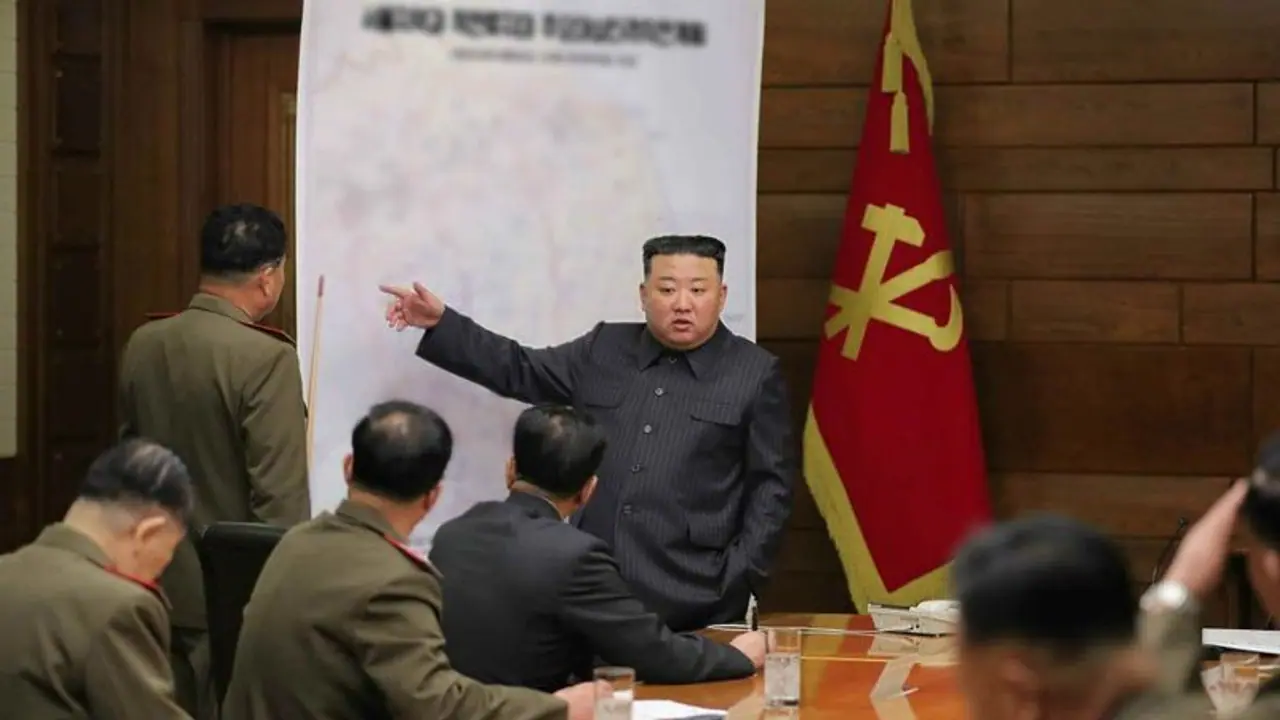The live firing is in line with the continuous warnings issued by Kim Jong Un's regime in Pyongyang, indicating its preparedness for potential conflict with South Korea and its ally, the United States.
North Korea launched over 200 artillery shells in close proximity to two South Korean islands on Friday, leading to evacuation directives for the residents, as reported by Seoul's defense ministry and local authorities. This live firing incident comes after multiple warnings from Kim Jong Un's regime in Pyongyang, asserting its readiness for conflict against South Korea and its ally, the United States.

"The North Korean military conducted over 200 rounds of firing today from around 09:00 to 11:00 (1200 to 0200 GMT) in the areas of Jangsan-got in the northern part of Baengnyeong Island and the northern areas... of Yeonpyeong Island," a defence ministry official said at a briefing.
According to Yeonpyeong local officials who spoke to AFP, civilians have been instructed to evacuate, characterizing the directive as a "preventive measure."
Yeonpyeong Island in South Korea is positioned in the Yellow Sea, about 80 kilometers west of Incheon and 12 kilometers south of the coastline of Hwanghae Province, North Korea.
Authorities on Baengnyeong Island also reported an evacuation order there.
"We are making the evacuation announcements at the moment," stated a local district official on Baengnyeong Island to AFP. He added that he had received information indicating that the South Korean military would soon carry out a naval drill.
In November 2010, Pyongyang unleashed a barrage of 170 artillery shells onto Yeonpyeong Island, resulting in the tragic deaths of four individuals, including two civilians. This marked the first North Korean attack on a civilian area since the Korean War of 1950-53.
Current relations between the two Koreas are experiencing a notable downturn, with Kim solidifying the nation's nuclear status in the constitution and conducting tests on advanced Intercontinental Ballistic Missiles (ICBMs). During key year-end policy meetings in Pyongyang, Kim issued a warning of a potential nuclear strike on the South and advocated for the bolstering of the country's military arsenal in anticipation of an armed conflict that he cautioned could erupt at any moment.
Kim accused the United States of presenting "various forms of military threat" and directed his armed forces to maintain an "overwhelming war response capability," as per KCNA's report on the meeting that concluded on Saturday.
The gathering determined that it is a "fait accompli that a war may break out on the Korean peninsula any time due to the enemies' reckless moves for invading the DPRK," stated KCNA, using the acronym for the North's official name.
In an attempt to dissuade Pyongyang, Washington deployed a nuclear-powered submarine to the South Korean port city of Busan this month and conducted drills with its long-range bombers alongside Seoul and Tokyo.
To discourage Pyongyang, the United States positioned a nuclear-powered submarine in the South Korean port city of Busan this month and conducted exercises with its long-range bombers alongside Seoul and Tokyo.
The North has characterized the deployment of Washington's strategic assets, such as B-52 bombers, in joint drills on the Korean peninsula as "intentional nuclear war provocative moves."
The military "should rapidly respond to any possible nuclear crisis and put continuous spurs to the preparations for a great event to suppress the whole territory of south Korea by mobilizing all physical means and forces including nuclear forces in contingency", Kim said.
In 2023, the North achieved a successful launch of a reconnaissance satellite, with Seoul alleging that assistance from Russia was obtained in exchange for arms transfers to Ukraine.
